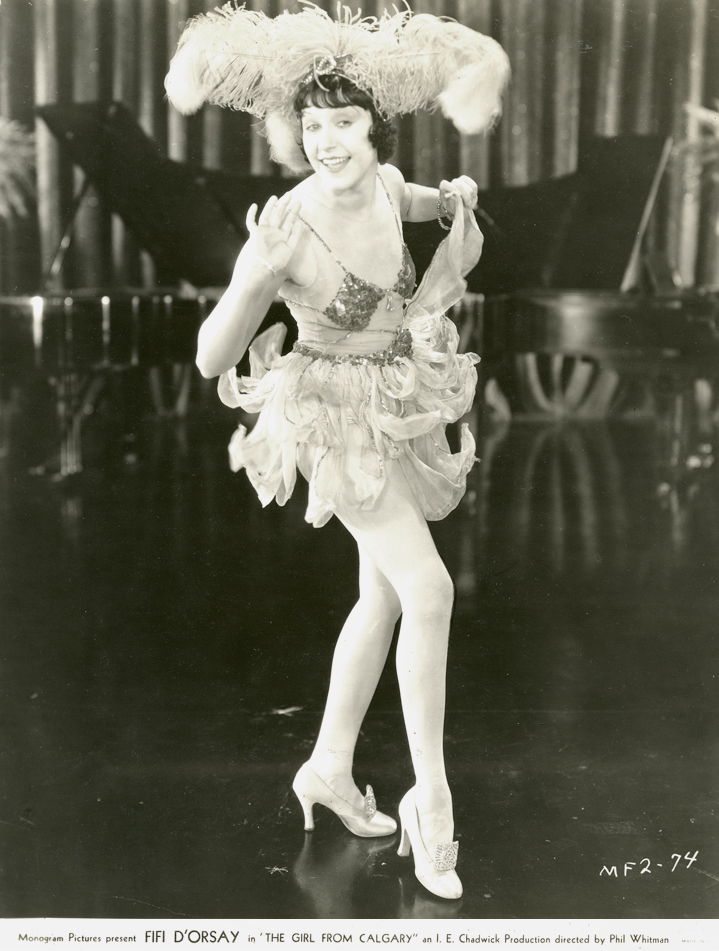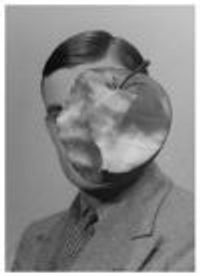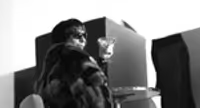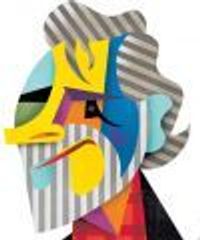The Official Kennedy Center FOLLIES Thread
#275The Official Kennedy Center FOLLIES Thread
Posted: 5/15/11 at 10:51am
I did not read this thread until after I saw the show yesterday as I didn't want anything to interfere with my experience. I'm so glad I'm quite unfamiliar with this show as I didn't go into yesterday's matinee with any preconceived notions of what I think the set should look like, or costumes, or performances for that matter.
PalJoey, this next item is for you. Pardon my ignorance, but the role of Solange LaFitte seems kind of insignificant and it seems like people have always had a problem with her song. Personally I wouldn't have missed her at all. I'm really surprised this particular character is actually in the show, or is there a purpose? Thanks.
#276The Official Kennedy Center FOLLIES Thread
Posted: 5/15/11 at 11:18am
During the writing of the show, they thought it was important to show a range of the numbers that appeared in the Follies. There were often those kind of saucy French numbers, by beautiful female Josephine Baker-types or handsome male Maurice Chevalier-types.
Plus, I think the trickster in Sondheim loved the idea of writing the Paris-song-end-all-Paris-songs.
You can read about what they went through with Fifi (who feuded with Ethel Shutta) in Ted Chapin's invaluable EVERYTHING WAS POSSIBLE, but here's what she was like when she was young:
http://youtu.be/DCF50DID3LE
Fifi D'Orsay in "The Girl from Calgary," a 1932 talkie:

#277The Official Kennedy Center FOLLIES Thread
Posted: 5/15/11 at 11:26am
There may never be a perfect production of FOLLIES, it's true- but it's also very hard to have a successful revival of a 'concept musical' when you remove the concept. What Prince and Bennett did in their staging was the magic cream that created the delicious layers in the original- without that you have a very thin crepe indeed.
And I'm not necessarily advocating that recreating the original production is the only way Follies can ever work, but if you abandon their concept, you have to replace it with another concept just as palpable--and as the Rounabout revival proved, setting the production in a very literal reunion party isn't a concept that plays into the themes and intentions of the musical as written.
If anything it completely counters it- Schaeffer falls into so many of the traps that Warchus did- the ever present party guests in the background- pulling focus and adding no insight into character; a literal treatment of the mirror number in which the women 'mess up the steps' because realistically how would they remember them? (And thus negating the brilliance of rhe concept of the number as a surreal but literal mirror of the women's imagination in perfect choreographic harmony with their former selves);etc.,
There are of course still things to enjoy here- as I said. Mainly the cast and the score- and I in no way mean to poo-pop the many people here who have enjoyed the production, but I do feel in this staging, you are only getting the bread unbuttered.
#278The Official Kennedy Center FOLLIES Thread
Posted: 5/15/11 at 12:20pm
What Prince and Bennett did in their staging was the magic cream that created the delicious layers in the original- without that you have a very thin crepe indeed.
I love this statement Michael Bennett. I love the way you express yourself. ![]()
#279The Official Kennedy Center FOLLIES Thread
Posted: 5/15/11 at 2:01pm
I like his butter one better:
I do feel in this staging, you are only getting the bread unbuttered
His posts make my mouth water (to quote Blanche DuBois again).
#280The Official Kennedy Center FOLLIES Thread
Posted: 5/15/11 at 2:57pm
Again, a disclaimer for not having been around to see the original production, but I don't understand really why a reunion grounded in realism is a notion that is outright wrong. I actually appreciate some of the realism in the first act, because it makes the follies and the transition into Loveland that much more striking. It's as if this haunting notion has been lingering over the show, and it finally manifests in a climactic moment. If the entire thing were projected as being a dreamscape/abstract, much of the stakes are lost.
Once more, my interpretation, but I don't think Follies is as plotless as some- even Sondheim himself- claim it to be. I think more than Company it has actual stakes and relationships that can be resolved in the plot of the show, and that's why I like its structure better than Company's. Much of the reason some people disliked the original (as I've heard) was because they couldn't find any point to grasp onto in it. But with things like the slight humor that comes with reunions, there is more for the average theatregoer to connect with. Maybe Sondheimites or what have you are able to more fully process and understand the concept of a show that takes place entirely in a dreamscape, but the public at large general don't appreciate that, and with a score/concept as marvelous as Follies, I don't see the harm of a little pandering here.
#281The Official Kennedy Center FOLLIES Thread
Posted: 5/15/11 at 4:00pm
PJ, I'm so proud of you! <3 (BTW, are you going to the matinee or evening performance next Sunday?)
I loved the score so much as a kid (Dorothy Collins was one-of-a-kind. I ADORE her.) that I have been waiting impatiently for a production I could see that would transform me to 1971. I suppose it's more about a reunion I am having with my youth than with the original Broadway production, but I had a lovely sense of connection to that time in my life when was FOLLIES was the only thing my parents ever talked about, listened to and went to see. Everything was FOLLIES!!!
Anyway, this production did evoke that sense in me. Therefore, I found it successful in creating a time gone-by when I was young, idealistic, hopeful and ambitious. I suppose for me it's more metaphysical than realistic, so it's good that we have true dramaturges (like PJ and MB) around here. ![]()
http://www.roches.com/television/ss83kod.html
**********
"If any relationship involves a flow chart, get out of it...FAST!"
~ Best12Bars
#282The Official Kennedy Center FOLLIES Thread
Posted: 5/15/11 at 4:50pm
"it's good that we have true dramaturges (like PJ and MB) around here."
Indeed - there've been some great posts recently.
Looking forward to the PJ Report next week.
bwayfan7000
Broadway Legend Joined: 3/28/09
#283The Official Kennedy Center FOLLIES Thread
Posted: 5/15/11 at 5:20pmI know that as someone who was not around for these storied original productions, I am grateful for any sort of production. Parts may be flawed, but if we get a full orchestra and a few great performances, and another production of the show, it's worth it. Seeing the imperfect Night Music revival was the closest I could get to seeing the original. It may not have been as good as the original, but I saw it on Broadway and with Bernadette, whose "Send in the Clowns" was one of the most amazing things I have ever seen onstage. So, I'll take what I can get.
#284The Official Kennedy Center FOLLIES Thread
Posted: 5/15/11 at 5:31pm
GRRR. Twice now my computer has frozen/crashed as I'm writing more of my thoughts.
I'll try again later, lol.
Updated On: 5/15/11 at 05:31 PM
Dollypop
Broadway Legend Joined: 5/15/03
#285The Official Kennedy Center FOLLIES Thread
Posted: 5/15/11 at 6:04pm
Reading through this thread makes me feel so very glad to be as old as I am. I have been fortunate enough to see the original productions of FOLLIES (several times), FIDDLER, COMPANY, NIGHT MUSIC, CABARET, FUNNY GIRL, MAME, MAN OF LA MANCHA and (of course) HELLO, DOLLY!
Regardless of how diligent or creative subsequent revivals of these show (and others) have been, none were as strikingly creative as the originals. Indeed, I lived through the "Golden Years" of Broadway and had some marvelous theatrical experiences along the way. Will any of the current crop of new musicals spark such discussions in 20 years? I mean, will a revival of SPRING AWAKENING spark caravans of New Yorkers heading down to DC for a glimpse at it?
The original FOLLIES was a work of art. Every production of it that I have seen since has only made me appreciate the first one more. I don't think I want to see the Kennedy Center version.
#286The Official Kennedy Center FOLLIES Thread
Posted: 5/15/11 at 9:57pm
Let me try this again! Some more random thoughts (maybe some SPOILERS?)
- I enjoyed last night's performance slightly better than the matinee. Bernadette's vocals were stronger, and she did less of her Desiree.
- Bernadette's entrance and exit are two of her BEST moments in the show. When she enters during the prologue, her Sally is totally overwhelmed by being back in that theater. She takes time to soak in the environment, and starts her small speech later than any other Sally. Her exit is also stunning. While it's not the dialogue I had wanted, Bernadette really nails it. When it comes time to leave, she takes her time again, almost contemplating staying. She composes herself, takes one last look, and walks out right in front of Buddy, completely oblivious of his presence. It had the right sense of hopelessness.
- Sally's red dress also started to make sense to me. In Too Many Mornings, Sally sings: "How I planned what I'd wear tonight..." Bernadette's Sally wears this red dress (probably her best) in hopes of reclaiming her lost love.
- Apparently The Right Girl has been restaged. Margie is no longer making an appearance, as had been mentioned earlier. The song uses the truncated "Ah, SH*T" ending, which I'm not a fan of.
- One More Kiss is total perfection. beautifully haunting.
- I love the showgirl ghosts wandering around the stage during the intermission. It worked for me.
- For act 2, we moved to the front orchestra. And the Loveland drops were even more hideous up close. A really disappointing reveal. Not what it should be. Thank god for the costumes though.
- I'm not a big fan of Bernadette's Losing My Mind wig. Wasn't too flattering. And for anyone who cares, she sings the higher final note.
- The male choreography in Lucy and Jesse is overdone. And Jan's dancing is too wooden. She really should be performing Ah, But Underneath.
- I really wish we had a better Who's That Woman?. And I miss the younger ghosts in the other pastiche numbers.
- Question. Did the original production not have the party guests mingle in the background throughout the show?
Updated On: 5/15/11 at 09:57 PM
#287The Official Kennedy Center FOLLIES Thread
Posted: 5/15/11 at 10:16pm
"Apparently The Right Girl has been restaged. Margie is no longer making an appearance, as had been mentioned earlier. The song uses the truncated "Ah, SH*T" ending, which I'm not a fan of."
Didn't she make an appearance in yesterday's matinee?
#288The Official Kennedy Center FOLLIES Thread
Posted: 5/15/11 at 10:18pmNope, only during Buddy's Blues.
#289The Official Kennedy Center FOLLIES Thread
Posted: 5/15/11 at 10:20pm
Well the original production certainly utilized a set design with a deeper playing area with a far away back wall that was barely visible until the final
Moments of the show-- the original staging played with depth illusion - characters appearing and disappearing into the black (you can tell this even from the clups on youtube) - its partly what made the vignette nature of the script flow and work, and why it feels so awkward when the show is given such a realistic, clausterphobic set design. And while I think you had glimpses of other partiers, waiters etc, throughout the evening, in the original, they weren't five feet away from the leads while they were performing say, "Waiting For the Girls Upstairs"-- the stage of the Eisenhower seems incredibly cramped for this show. And that is mostly because, again my opinion, Schaeffer is trying too hard to make the party "believable" as opposed to being a framing device.
Updated On: 5/15/11 at 10:20 PM
#290The Official Kennedy Center FOLLIES Thread
Posted: 5/15/11 at 10:21pmThanks, ljay.
#291The Official Kennedy Center FOLLIES Thread
Posted: 5/15/11 at 10:27pm
Dottie, when do you want to go back? I'm ready. ![]()
http://www.roches.com/television/ss83kod.html
**********
"If any relationship involves a flow chart, get out of it...FAST!"
~ Best12Bars
#292The Official Kennedy Center FOLLIES Thread
Posted: 5/15/11 at 10:31pmI'm totally new to Follies (I know how shocking that must sound) and was wondering what is the best and most complete recording I should buy?
#293The Official Kennedy Center FOLLIES Thread
Posted: 5/15/11 at 10:33pm
This is the only complete recording. It's the perfect one to start with. The OBCR is sadly a total disappointment.
http://www.amazon.com/Follies-Complete-Recording-1998-Jersey/dp/B00000FDK4/ref=sr_1_4?s=music&ie=UTF8&qid=1305513146&sr=1-4
#294The Official Kennedy Center FOLLIES Thread
Posted: 5/15/11 at 10:36pm
Great, thank you so much!
Once the Kennedy Center production was announced I knew I had to go see it, but also realized that I was totally unfamiliar with the show!
chrisampm2
Broadway Star Joined: 5/26/07
#295The Official Kennedy Center FOLLIES Thread
Posted: 5/15/11 at 10:41pmI do not agree that the OBCR is a total disappointment. Yes, it's incomplete and not perfectly produced, but do you really prefer Guittard to McMartin, Hoty to Smith, McKechnie to Collins, etc? Nothing against the Paper Mill cast, but the original performances are legendary for a reason.
#296The Official Kennedy Center FOLLIES Thread
Posted: 5/15/11 at 10:46pm
The OBCR is basically useless to me. It's simply missing too much. I listen to the soundboard recording when I want the OBC. It's an amazing experience, but the OBCR is not. It's just not a great introduction for a new listener. The Papermill album is more appropriate, in my opinion.
Updated On: 5/15/11 at 10:46 PM
bwayfan7000
Broadway Legend Joined: 3/28/09
#297The Official Kennedy Center FOLLIES Thread
Posted: 5/15/11 at 11:17pmThe reception to this is becoming murkier every day. Should I see this?
TheBatBoy
Chorus Member Joined: 1/5/11
#298The Official Kennedy Center FOLLIES Thread
Posted: 5/15/11 at 11:40pmIf anyone has the OBCR Soundboard recording of Follies can they PM me? I lost it due to a hard drive crash and would love it again.
#299The Official Kennedy Center FOLLIES Thread
Posted: 5/16/11 at 1:40am
There were relatively few party guests in the original.
BUT THERE WERE GHOSTS IN EVERY SCENE

Videos








